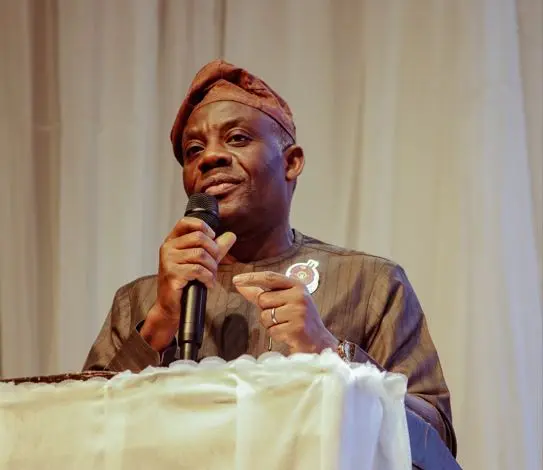The Federal Government announces a substantial stride in advancing digital health innovation through the formation of a 20-member Digital Health Committee.
The committee’s goal is to address the nation’s healthcare system’s current fragmentation, which has impeded growth despite significant gains.
This was stated in Abuja during the 20-person Nigerian Digital Health Initiative (NHDI) implementation committee’s induction, according to Dr. Tunji Alausa, Minister of State for Health and Social Welfare.
Alausa highlighted the promising future of the nation’s rapidly growing health technology industry, which has seen the emergence of an astounding 136 health tech businesses.
He did, however, voice reservations about the state of affairs, pointing out inefficiencies and a reliance on antiquated paper-based procedures.
“Real-time information sharing remains a challenge, exacerbating existing gaps in service delivery,” he remarked.
The minister vowed the administration’s commitment to lessening fragmentation, acknowledging the pressing need for cohesiveness and high-quality data management.
He emphasized how important high-quality data is to bringing about significant change across the nation.
While he admitted that there were other digital platforms in the nation accomplishing comparable goals, he pointed out that they were more dispersed than the new projects.
He declared that a single national EMR platform will house all Electronic Medical Record (EMR) solutions, allowing for data validation and analysis for better results.
“The initiative aims to deploy programmes in one federal tertiary hospital in each of the six geopolitical zones over the next five years.
“Geofencing primary healthcare centres within the vicinity of these hospitals will enable a bi-directional flow of information,” he said.
In order to guarantee sustainability, he outlined initiatives that were centered on data governance, repositories, security, regulation, and standardization inside the digital architecture.
He emphasized that the government would keep ownership of the data for purposes of future innovation, but that the private sector must be involved in the project to ensure long-term sustainability.
The Coordinating Minister of Health and Social Welfare, Prof. Muhammad Ali Pate, commented on the initiative and emphasized the potential for reforming the nation’s health system through coordinated efforts and policy changes.
According to Pate, the establishment of the digital committee was a significant step toward utilizing digital technologies to address persistent issues and bring about a new age of exceptional healthcare in the nation.
Assisted by a secretariat team, the Implementation Committee for Nigeria Digital Health Initiative (IC-NDHI) will oversee the EMR platform’s deployment, architectural design, and pilot.
In order to advance the health digitization agenda, it will also offer guidelines for the overall activities’ coordination, implementation, and execution at all levels.

